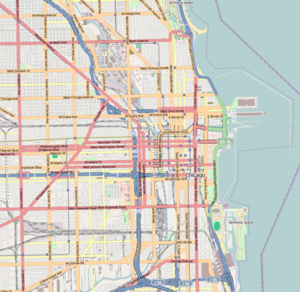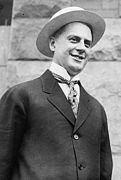User:Paris1127/Averbuch incident
| Date | March 2, 1908 |
|---|---|
| Venue | Home of Chicago Police Superintendent George M. Shippy |
| Location | 31 North Lincoln Place (now 2131 North Hudson Avenue), Lincoln Park, Chicago, Illinois |
| Coordinates | 41°55′16″N 87°38′23″W / 41.921052°N 87.639812°W |
| Participants | George M. Shippy Harry Shippy, Shippy's son James Foley, Shippy's driver Lazarus Averbuch |
| Outcome | Lazarus Averbuch shot and killed, George and Harry Shippy and James Foley wounded |
| Burial | Ridge Lawn Cemetery, Chicago, Illinois |
| Inquest | March 24, 1908 |
| Coroner | Peter M. Hoffman |
Lazarus Averbuch | |
|---|---|
Лазарь Авербух | |
| Born | 1889 |
| Died | March 2, 1908 (aged 18–19) |
| Resting place | Ridge Lawn Cemetery, Chicago, IL |
| Nationality | Russian |
| Relatives | Olga Averbuch (sister) |
| Motive | Unknown |
Superintendent George M. Shippy | |
|---|---|
 Chicago Police Superintendent George M. Shippy | |
| Born | 24 June 1856 |
| Died | 13 April 1913 (aged 56) Chicago, Illinois |
| Resting place | Oak Woods Cemetery, Chicago |
| Police career | |
| Department | Chicago Police Department |
| Rank |
|
The death of Lazarus Averbuch, also known as the Averbuch incident, occurred on March 2, 1908, at the home of the Chicago Police Department's Superintendent, George M. Shippy, in the Lincoln Park neighborhood of Chicago, Illinois. Averbuch called on the Superintendent at 9 AM; Shippy claimed that Averbuch was an anarchist who attempted to stab and shoot him, leading to Shippy and his driver, James Foley, shooting Averbuch to death. Shippy, his son Harry, and Foley were wounded in the melee.
Anarchy in Chicago
[edit]The Great Chicago Fire of October 8, 1871 devastated Chicago, destroying the central business district (today's Loop). A construction boom followed as the city rebuilt; new arrivals flooded in via the network of railroads that converged on Chicago. The city expanded, and new factories and facilities opened. The new wealth in Chicago was not evenly distributed, and angry workers demanded better working conditions. On May 3, 1886, Chicago Police killed several workers protesting for an eight-hour workday. The next day, May 4, at a protest at the city's Haymarket (located at Randolph and DesPlaines), a bomb was thrown at the speaker's wagon---the ensuing explosion killed 7 police officers and 4 workers. A crackdown on unions by Chicago Police followed. After an investigation, 8 men were arrested, tried and convicted for the bombing. 4 were hanged, one committed suicide, and three were pardoned by Illinois Governor John Peter Altgeld. The Haymarket incident is what attracted Emma Goldman to anarchism.
On September 6, 1901, anarchist Leon Czolgosz shot President William McKinley at the Pan-American Exposition in Buffalo, New York. McKinley died from his wounds on September 14, 8 days after being shot. Goldman, an acquaintance of Czolgosz, was initially a suspect in the assassination (she had previously, with her lover, Alexander Berkman, conspired to kill steel executive Henry Clay Frick). Chicago Police arrested her at her home on Sheffield Avenue, on the city's North Side, but had to release her on September 24 when it became clear she had not been involved in the assassination and had in fact had concerns about Czolgosz.
Averbuch
[edit]Lazarus Averbuch (Russian: Лазарь Авербух, also referred to as Jeremiah or Harry), a recent arrival in the United States, lived on the city's Near West Side, sharing an apartment at 218 West Washburne Avenue (renumbered 1440 in 1909, now demolished) in the Jewish ghetto near Maxwell Street, with his sister Olga. The Averbuchs were natives of Kishinev, Russian Empire (now Chișinău, Moldova). Two pogroms in the early 20th Century forced their family to leave: in April 1903, the murder of a Christian child was spun into a blood libel against the Jewish community in Kishinev; the ensuing pogrom killed approximately 120 Jews; in October 1905, a protest against the Tsar turned into a second pogrom against the Jews, 20 dying in this one. After this second pogrom, the Averbuchs fled Kishinev for Chernovitsy, in Austria-Hungary (now part of Ukraine). Olga emigrated to Chicago while Averbuch worked as a bookkeeper in Austria. He joined Olga in Chicago in 1907. Unable to get work as a bookkeeper or clerk, he took a job packing eggs for W. H. Eichengreen at the South Water Street Market (now part of Illinois Center).
-
Mayor of Chicago Fred A. Busse (1907-1911)
-
Harold L. Ickes, Averbuch family attorney, later United States Secretary of the Interior from 1933-1946
-
Emma Goldman, anarchist who was previously scheduled to speak in Chicago after Averbuch's death, avoided arrest but had difficulty finding a venue that would let her speak
-
Jane Addams, founder of Hull House and prominent social activist. She lead a group advocating for Averbuch's sister, Olga
-
Julius Rosenwald, President of Sears, Roebuck and Co., who secretly raised money for Jane Addams and Olga Averbuch
-
Oscar Straus, Secretary of Commerce and Labor, who ordered immigration officers to work with the United States Secret Service and local police to find, arrest, and deport immigrants with Anarchist beliefs in response to Averbuch's death
-
Adolph J. Sabath, (D-IL), Jewish-American Congressman representing Chicago's West Side. Was debating restrictions on anarchist immigration on March 2









